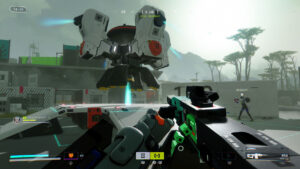Summary
- Bungie is accused of using independent artist Antireal's 2017 portfolio for Marathon's in-game assets without permission.
- Fans demand stricter asset management and transparency from Bungie to prevent future art appropriation issues.
Bungie’s latest stumble feels all too familiar: another independent artist, known online as Antireal, is accusing the studio of lifting her entire 2017 portfolio for use as in‑game graffiti assets in Marathon’s alpha playtest. This time, Bungie didn’t hide behind corporate speak—they blamed a former employee, promised a full asset audit, and offered a muted apology while they “make things right.” Fans aren’t buying it. With a track record that includes a Destiny 2 cutscene controversy in 2023 and a sci‑fi author lawsuit in 2024, supporters and critics alike are wondering whether Bungie’s pattern of art appropriation stems from sloppiness or something more troubling. As Marathon’s launch looms, this could be the biggest creative crisis the studio has faced in years.
The first whispers of trouble began when Antireal—who’s carved out a modest following for her vivid, dystopian landscapes—spotted her art mirrored almost identically in Marathon’s alpha test. She posted side‑by‑side comparisons on Twitter: the same color palettes, the same stylized brush strokes, even matching cracks in brick walls. It wasn’t a single piece or two; it looked like they’d pulled straight from her entire online gallery. Fans of both Bungie and Antireal were stunned. How do you accidentally replicate another artist’s distinct style down to the tiniest details? And how did this slip through Marathon’s internal review process?
the Marathon alpha released recently and its environments are covered with assets lifted from poster designs i made in 2017.@Bungie @josephacross pic.twitter.com/0Csbo48Jgb
— N² (@4nt1r34l) May 15, 2025
We immediately investigated a concern regarding unauthorized use of artist decals in Marathon and confirmed that a former Bungie artist included these in a texture sheet that was ultimately used in-game.
— MarathonDevTeam (@MarathonDevTeam) May 16, 2025
Public pressure built quickly. Within hours of Antireal’s tweets, Marathon’s official development account issued a statement—rare for Bungie, which usually waits days or weeks before acknowledging fan outcry. They admitted the assets came from Antireal’s work, blamed a now‑departed artist, and pledged a “thorough review of all in‑game assets.” They said they’d reached out to Antireal directly and would “address the matter and make things right.” That phrasing felt familiar—echoing the studio’s 2023 apology for an unlicensed Destiny 2 cutscene—but still left many unsatisfied. Was this just another PR band‑aid over a deeper issue with how Bungie sources art?
Skeptics dug deeper and noticed something odd: several current Marathon developers, including art director Joseph Cross, have been following Antireal’s social accounts since at least 2017. How does an artist’s distinctive online portfolio, complete with watermarks and post dates, go unnoticed by art directors and QA teams? If Bungie’s own art leaders were watching Antireal’s feed, how did her work become “orphaned” in their asset pipeline? For a company that prides itself on polished visuals and meticulous world‑building, these gaps in oversight have fans crying foul—and accusing Bungie of scapegoating a single former employee.
Meanwhile, Antireal herself has taken to her Twitter thread, sharing her side of the story with raw honesty. She explained that despite a decade of pouring her heart into art, she’s barely scraped by—no steady income, scant legal resources, and zero backing from major studios. The idea of going head‑to‑head with a giant like Bungie in court seems like a pipe dream; she’d need deep pockets for lawyers and expert witnesses to prove her case, and a small‑time freelancer simply doesn’t have that. Yet here she is, watching her creative sweat be repurposed for one of the year’s most‑anticipated game launches, while she scrounges for commissions to pay the rent.
This latest dust‑up isn’t Bungie’s first rodeo. Back in 2023, the studio admitted to “accidentally” using an independent artist’s work in a Destiny 2 cutscene—then quietly slipped credits to the creator in a patch note. And in 2024, sci‑fi author [Name Redacted] sued Bungie for allegedly lifting key story beats from her novel into Destiny 2’s campaign. In both cases, Bungie ultimately settled—crediting the original creators in‑game and offering undisclosed compensation. But each settlement felt like a grudging nod rather than a proactive show of respect for artistic labor. The pattern suggests that third‑party IP checks at Bungie might be more reactive than preventive.
Looking forward, players and industry watchers expect Bungie to follow the same playbook: offer Antireal a financial settlement, grant her in‑game credit, and quietly update Marathon’s assets before launch. But many argue that won’t be enough. The studio needs to overhaul its asset‑management pipeline—implement stricter vetting, better documentation, and mandatory cross‑checking against creators’ public portfolios. Otherwise, we’ll be right back here, debating whether “inside job” artists or systemic negligence are to blame when yet another indie creator’s work goes missing.
For fans who’ve stuck by Bungie through The Taken King, Forsaken, and Year 7 teasers, this controversy stings. There’s a sense of betrayal that a company built on epic worlds and heroic tales could so casually appropriate the creations of a struggling artist. Some defenders point out that mistakes happen, especially on sprawling live‑service titles with hundreds of artists and contractors. But Marathon isn’t just another live‑service project—it’s Bungie’s bid to prove they can launch new IP outside the Destiny universe. If they can’t protect artists’ rights, how can fans trust them to protect player data, community interests, or future creations?
In the broader context of the gaming industry, art‑theft accusations crop up more often than we’d like: freelancers under‑credited, concept artists un‑paid, mods appropriated without consent. But Bungie’s high profile amplifies the headlines. When a mid‑tier indie studio faces these claims, it’s a cautionary tale in the corner of a community forum. When Bungie—a Sony‑backed behemoth with AAA budgets—misses the mark, it becomes a headline, a trending topic, and a case study for other developers. The stakes are higher, the scrutiny is sharper, and the potential fallout could damage the Marathon brand before it’s even launched.
So what happens next? If Bungie truly wants to turn the page, they need more than an apology tweet. They should invite Antireal into the process—offer her an official consultant role to oversee asset revisions, publicly share a timeline for the audit, and host a live‑streamed AMA on art‑asset best practices. That level of transparency would go a long way toward rebuilding trust. Plus, it could set a new industry standard: when you’re caught, you respond with openness, restitution, and a clear plan to prevent repeats. Gamers—and artists—deserve nothing less.
At its core, this isn’t just about stolen graffiti textures or a leaked lobby artwork. It’s about respect for creative voices in an industry that too often treats artists as disposable. If Bungie listens, learns, and changes course, they’ll not only salvage Marathon’s launch—they’ll earn back the goodwill of players who care about artistry as much as they care about loot drops. But if this turns into another quiet settlement and a “never again” press release, the community will brandish this scandal as proof that Bungie only cleans up messes when they’re forced to—and that’s a hard label to shake.
Whether Bungie emerges from this with its reputation intact or takes a lasting hit may depend on how genuine their next steps feel. Will they treat Antireal like a valued partner or just another line item on a legal settlement? Will they share lessons learned with the broader community, or bury them in internal memos? As Marathon’s launch date draws near, all eyes are on Bungie. If they handle this right, they could turn a PR disaster into a moment of leadership in an industry hungry for better standards. If not, they’ll reinforce the worst fears of indie creators everywhere: that even the biggest studios see their work—and their rights—as expendable.


 Unreal 5
Unreal 5


It’s unfortunate to see Bungie facing these issues again, but it’s encouraging that they are taking steps to address the situation. Hopefully, this leads to more transparent and respectful practices in the future.